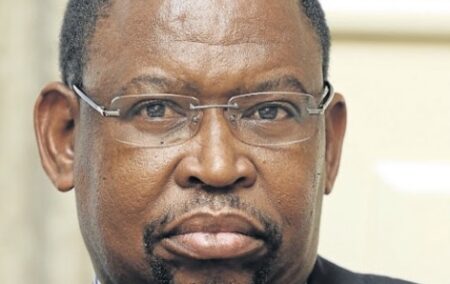The Institute of Race Relations (IRR) has invited the Minister of Finance, Enoch Godongwana, and senior National Treasury officials to hear its proposal for tax cuts.
In a statement, IRR campaign manager Makone Maja says the IRR’s proposals for cutting fuel levies, and reducing VAT from 15% to 11.5% are contained in the recent report, The IRR’s Blueprint for Growth: Slash waste, cut taxes, which makes the case for simultaneously relieving the tax burden on cash-strapped citizens, and stimulating economic growth.
Maja notes that these tax cuts can be made without a corresponding decline in the quality of services.
Maja argues that there are several benefits in cutting taxes.
‘The first reason is that giving money back to taxpayers to spend on their needs in these pressing times will provide them with immense financial relief; increase consumer spending; and drive down the cost of goods and services at a time of high prices arising in large part from interest rate hikes, as well as poor management of the currency resulting in increased fuel prices.’
The second reason for cutting taxes and thus putting pressure on government revenue ‘is to limit government waste of taxpayer funds’.
‘The Auditor General of South Africa reported late last year that government departments had lost R28.22 billion in unauthorised expenditure over the last four years, and that irregular expenditure in 2022-23 amounted to R63.37 billion, which she said could be higher due to changes in disclosure requirements from auditees.’
Maja adds that cutting taxes will mitigate the gross loss of taxpayer funds through such wasteful and fruitless spending and confine government access to resources it can manage efficiently, while simultaneously maintaining the same or improved levels of service delivery.
‘The Institute bases this argument on what it calls the “Zondo dividend”, broadly, the billions that would be saved if the government adopted the recommendation in the report of the State Capture Commission presided over by Chief Justice Raymond Zondo to forego preferential procurement in exchange for value-for-money procurement and give taxpayers value for their money.’
Adds Maja: ‘The Institute would also like to engage the Treasury on the BEE premium. This is the premium government pays when it sources goods and services from BEE companies. Non-value-adding characteristics are prioritised which come at a higher cost – not only at the expense of the taxpayers but of service delivery as well. This information about the BEE premium is very hard to come by and the Institute would like to encourage Treasury to be forthcoming with the true cost of the “preferences” in preferential procurement and whether it believes the country can still afford to place them above quality service delivery and the interests of all other South Africans, especially the poor, who suffer most.’
Maja concludes that ‘economic growth will require transparency, accountability, bold decision making and reforms from government to change the country’s fortunes. The Institute hopes that both Treasury and the Minister of Finance will be interested in letting the public know whether it is up to the task.’

